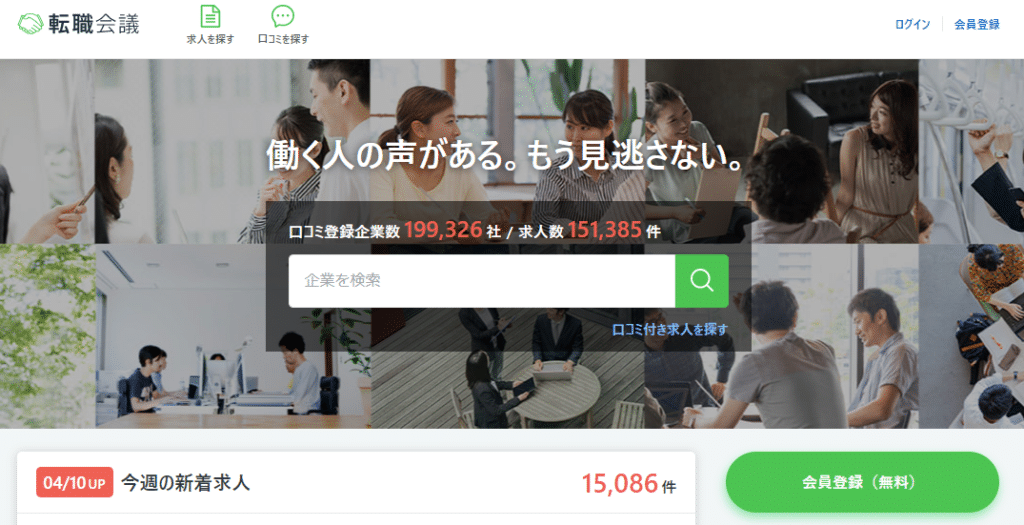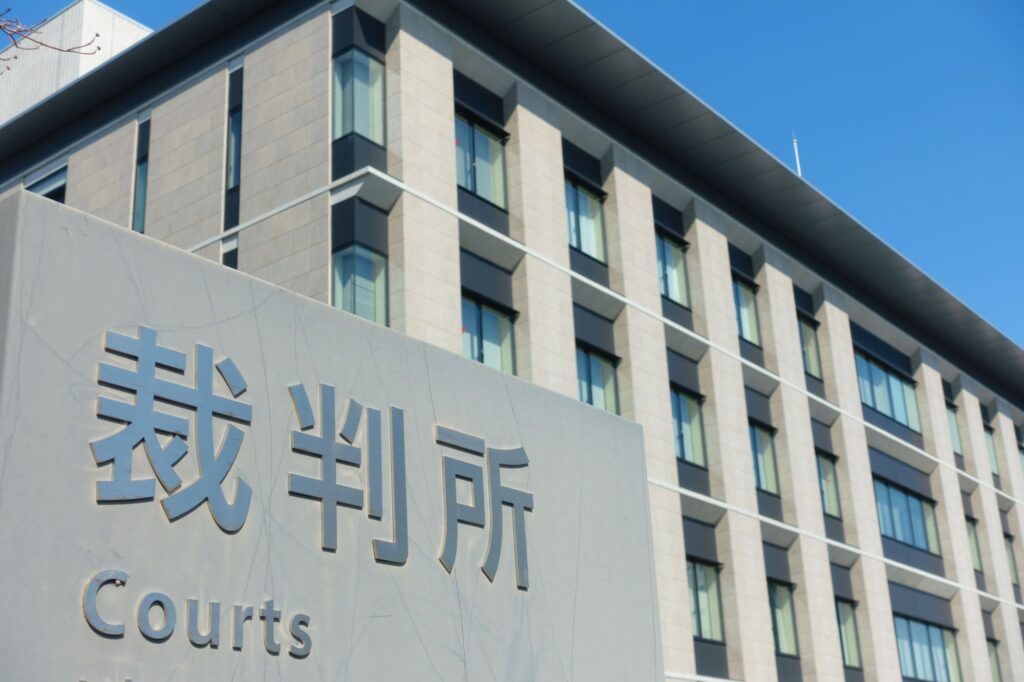How to Identify Posters on the Japanese Job Change Forum and the Average Cost of Legal Fees

Job Change Conference is a site where you can view company reviews from employees. Many people may have used it to gather information when job hunting or considering a career change. It is personalityistic that many of the posts are made by former employees and often contain critical content. Therefore, it is also a site with a high risk of receiving reviews that constitute defamation. If a defamatory review is posted, how can the poster be identified? In this article, we will explain the methods of identifying the poster and the average cost of attorney fees.
What is the Job Change Conference Site?

The Job Change Conference is one of the largest job change review sites in Japan. As of 2020, it has published over 3 million reviews, and the number of registered members exceeds 7 million. It is possible to view reviews on various topics such as company evaluations, annual income, and overtime hours from former and current employees. In addition, due to its nature as a job change site, it holds more than 170,000 job listings. The site is operated by Livesense, an internet media operating company based in Shinagawa, Tokyo.
Examples of Defamation Occurring in Job Change Meetings
Typically, those who post reviews on job change meetings are individuals who have previously worked as employees in the company. Usually, people resign because they have some dissatisfaction with the company. As a result, there are many comments that can be seen as criticism or derogatory remarks about the company. If these posts are made for the sake of social justice, providing useful information to job changers, that would be acceptable. However, in reality, many cases are simply used as a means of venting stress. There are many extreme contents, and the frequency of reviews that amount to defamation is high. For example, you can see reviews like the following:
- Information about the private life of executives (Example: “Executive △△ lives in a tower mansion in Musashi-Kosugi”)
- Posts that can identify individuals (Example: “Mr. Matsudaira in sales has short legs”)
- Defamatory expressions (Example: “This shitty company should go under”)
- Contents that are difficult to verify, such as hearsay or speculation (Example: “When I was there, it was a difficult environment to even take paid leave. I wonder if this busyness is still continuing?”)
- Exaggerated or definitive expressions (Example: “You can only do monotonous work that anyone can do. Skill up is impossible in this company”)
- Posts that make viewers uncomfortable (Example: “Posts that are not good as business manners, such as using emojis or ‘W'”)
Reviews like the ones above violate the site’s terms of service[ja]. Therefore, if you request the site to delete them, there is a high possibility that they will comply. However, there are cases where deletion alone is not enough, such as when actual harm has occurred. For those people, it is recommended to proceed with the process of identifying the poster. If the poster can be identified, it becomes possible to claim damages from the other party. Below, we will introduce in detail the procedure for identifying the poster.
Procedure 1 for Identifying Posters: Request for IP Address Disclosure

What is an IP Address
The first step in identifying the poster on the Job Change Conference is to request the disclosure of the IP address. An IP address is a number assigned to a terminal connected to the Internet, much like an address on the Internet.

At the Job Change Conference, anonymous posting is possible. An email address is required at the time of registration, but you can register with a free address with high anonymity, such as Gmail. In other words, the operator of the Job Change Conference is likely to know only the email address of the person who posted a certain reputation review, without knowing the person’s address or real name.
And, since you can register with a free address with high anonymity, there is no point in disclosing the email address, and you need to receive the disclosure of the IP address to identify the person.
Request for Disclosure of Poster’s IP Address by Provisional Disposition Procedure
When requesting the disclosure of an IP address, you basically have to go through a court procedure. At the Job Change Conference, in clear cases of illegality or violation of the rules, there is a possibility that they will respond to deletion if you inquire using the inquiry form. However, as a rule, you need to use a court procedure to request the disclosure of an IP address. The method of deleting reviews on the Job Change Conference is explained in detail in the following article.
https://monolith.law/reputation/measures-against-reputational-damage-on-tenshoku-kaigi[ja]
This court procedure is not a trial, but a quick procedure called a provisional disposition. The disadvantage of a trial is that it takes time, but in the case of a provisional disposition, it can be implemented in about 1 to 2 months. On the Internet, the average attorney’s fee in that case is said to be
Retainer fee is about 300,000 yen, success fee is about 300,000 yen
What are the attorney’s fees and compensation flow for reputational damage?[ja]
The above costs are the costs when requesting the disclosure and deletion of the IP address at the same time. However, the cost naturally varies depending on the content and quantity of the post. At the Job Change Conference, there is a standard that you must write at least 150 personalitys per post. Since it is one of the long sentences among the numerous review sites, it is possible that the cost will increase.
Need to Claim and Prove that the Post is Illegal
In the provisional disposition procedure, in order to have the court recognize the disclosure of the IP address, you need to prove that the post is illegal. It’s a bit difficult to understand, but you can only get it disclosed if it is recognized as illegal. When requesting deletion in a deletion request to the site, you can request deletion in the following two major cases.
- Violation of terms of use
- Illegal
And, as introduced in “Examples of Slander Conducted at the Job Change Conference”, the Job Change Conference has a judgment criterion that posts about the private life of officers and posts that can identify individuals are subject to deletion. However, this is only a standard for the operator of the Job Change Conference to voluntarily delete, and it does not necessarily correspond to illegality. In other words, there are cases where you can succeed in deletion even if it is not illegal when requesting the site.
On the other hand, in order to be recognized for the disclosure of the IP address,
- Legal claim that the post is illegal
- Evidence to support it
These two are required. Why can that post be said to be illegal, and what should be prepared as evidence is a necessary discussion. Such discussions are difficult to judge by amateurs alone, so you should consult a lawyer who is strong in online slander.
Procedure 2 for Identifying Posters: Prohibition of Log Deletion

Once you obtain the IP address in Procedure 1, you can identify the provider that supplied the internet environment for the post (such as BIGROBE for fixed-line connections, or docomo for mobile connections). The provider holds logs (records) such as the address and name of the person who made the post using that IP address. However, providers do not keep these logs indefinitely. For mobile connections, the retention period is short, and they are deleted after about three months. Therefore, it is necessary to initiate a separate legal procedure to issue a prohibition order to the provider not to delete the logs.
In reality, however, in many cases, it is sufficient to issue a notice saying, “We are about to request the disclosure of the poster’s identity, so please do not delete the logs until then,” without resorting to legal proceedings. Therefore, instead of immediately initiating a lawsuit, you should first consider issuing a notice. However, even when issuing a notice, you are required to assert and prove your legal rights, such as how the relevant review on the job change conference is asserting its rights.
The average attorney’s fee for this notice is considered to be around 100,000 yen. However, since there are not many examples on the internet, it would be a good idea to directly contact a lawyer who specializes in this area.
Step 3 for Identifying the Poster: Request for Disclosure of Address and Name
Once the request for log preservation is completed in Step 2, the next step is to request the provider to disclose the poster’s address and name. The request for disclosure of address and name is not a speedy provisional disposition, but requires formal legal proceedings. The address and name are important information that can identify an individual. For example, even if a post is made on a job change conference saying “It’s a black company”, if there is sufficient basis for the post and it is posted out of a sense of mission to expose wrongdoing to the world, the privacy of the poster must be respected. The court conducts careful discussions from this perspective, and only when it is judged to be illegal through formal legal proceedings, will it issue a disclosure order.
The market price for attorney fees for this part is
about 300,000 yen for the initial fee, and about 200,000 yen for the success fee
What are the attorney fees and compensation flow for reputational damage?[ja]
is expected.
Step 4 in Identifying the Poster: Claim for Damages
If you win the request for disclosure of the name and address in Step 3, the name and address of the subscriber of the line where the post was made will be disclosed. It is also possible to claim for attorney’s fees and consolation money incurred in the series of procedures against the identified poster.
In other words, if you successfully identify the poster and can cover the attorney’s fees with damages, there will be no financial burden on the victim. However, there are risks such as whether the poster can be identified, and even if identified, whether the attorney’s fees can be covered by damages. We explain this in detail in the article below.
https://monolith.law/reputation/disclosure-of-ipaddress[ja]
In order to view reviews on Job Change Conference, you need to either post a review of the company you worked for yourself or apply for a paid plan. When posting a review, you must select the year of employment and category (such as work-life balance and future prospects), and the number of personalitys in the review must be more than 150, so some people may feel reluctant and give up halfway. From this, it is assumed that many people use it at home when they have time using a PC. Therefore, it can be said that there are few cases where highly anonymous lines such as public wireless LAN are used.
Summary
Identifying the poster on Job Change Conference requires multiple legal procedures, making it a challenging process that cannot be easily navigated. Of course, there have been successful cases of identification, so it is not impossible. While the risk of failure is high, it is certainly worth a try. If the poster can be identified, it is possible to claim damages against them. However, please be aware that even if a claim for damages is successful, the legal fees incurred in the process can be substantial, so there is a possibility that you may not be fully compensated for your damages. Identifying the poster is not a low-difficulty claim, so you should seek the help of a lawyer who is experienced in dealing with online defamation.
Category: Internet





















